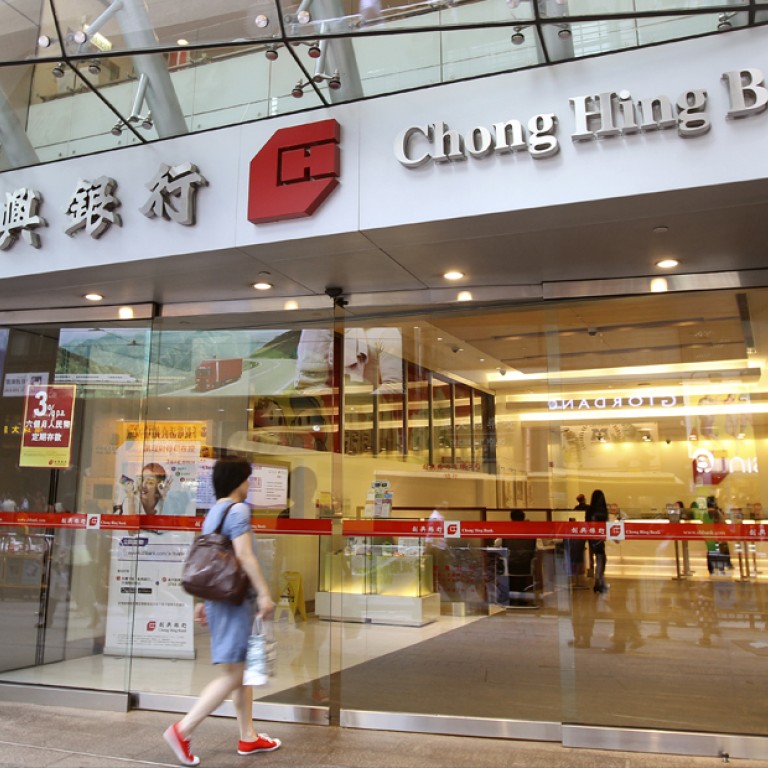
Chong Hing sale sounds alarm bells for Hong Kong's small businesses
While it may make financial sense, the bank deal has made Hongkongers ponder the fate of home-grown businesses trying to stay afloat in the city
The sale of Chong Hing Bank, one of the four remaining family-owned banks in Hong Kong, may be good news for its shareholders who can cash out at a high premium, but it is sad news to many Hongkongers when we try to find a way for the city's small businesses to prosper.
Chong Hing has been a witness of Hong Kong's ups and downs since it was founded in 1948.
In more recent years, the main reason its business kept growing was its loyal customers, including many local small and medium-sized businesses that have been growing with the bank for the past six decades.
Many of those customers were also old friends of the Liu family, which controlled the bank until last week when it agreed to sell to Yue Xiu, an investment arm of the Guangzhou government for HK$11.6 billion.
If we look at the deal purely from a financial perspective, it does make a lot of sense to both the Liu family and the new owner, which is already an experienced mainland institutional investor active in real estate and capital markets.
Many banking industry analysts described the deal as a "win-win" because they were previously worried how long small family banks such as Chong Hing could survive amid the fast-rising competition in Hong Kong's banking business.
In 2008, Shenzhen's China Merchants Bank, acquired Wing Lung Bank from the Wu family.
At least Merchants Bank is now a more familiar banking brand in Hong Kong after the acquisition.
Financially speaking, you can definitely call the deal a "win-win" and I am sure the Chong Hing-Yue Xiu deal will be just another "win-win".
But emotionally speaking, the sale has made many Hong Kong people ponder the fate of the city's home-grown businesses that are now in a "small" shape, particularly when compared with giant rivals from the north or around the world.
Last weekend, I met a retired teacher at lunch and she was well informed about the Chong Hing sale.
"It must be very, very hard for the Liu family that set up the bank from almost nothing in the late 1940s," she said. "That was a very difficult time for Hong Kong and they still made it.
"And now it is just sold that easily when Hong Kong is definitely not in as much difficulties as it was in the 1940s or 1950s."
I ask myself why. Financially, I do have a very clear answer. Emotionally, the answer is much more mixed.
There are of course still some local businesses that are fighting very hard to survive. When was your last visit to a Sincere department store?
A lot of Shanghai people still have fond memories of Sincere, which used to be one of the so-called "Big Four companies" in the city before the civil war. Now its business has slowed down quickly and instead you see more global luxury labels and stores coming to occupy the city.
But Sincere is set to open a new store in Causeway Bay, right across the street from Japan's Uniqlo, already a global retail giant.
If Sincere can survive, what about other local small banks? If not, then what on earth is wrong with Hong Kong?

